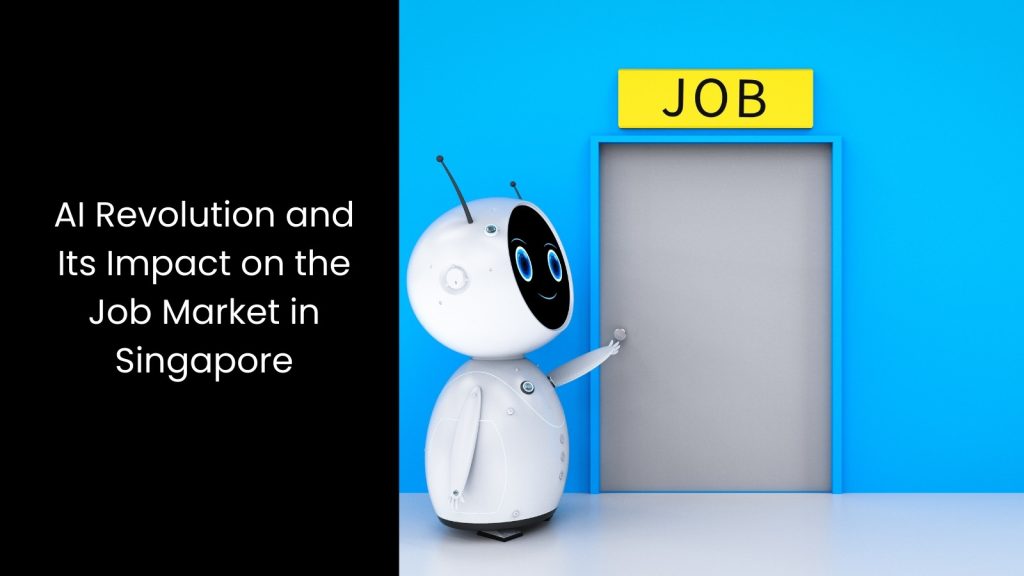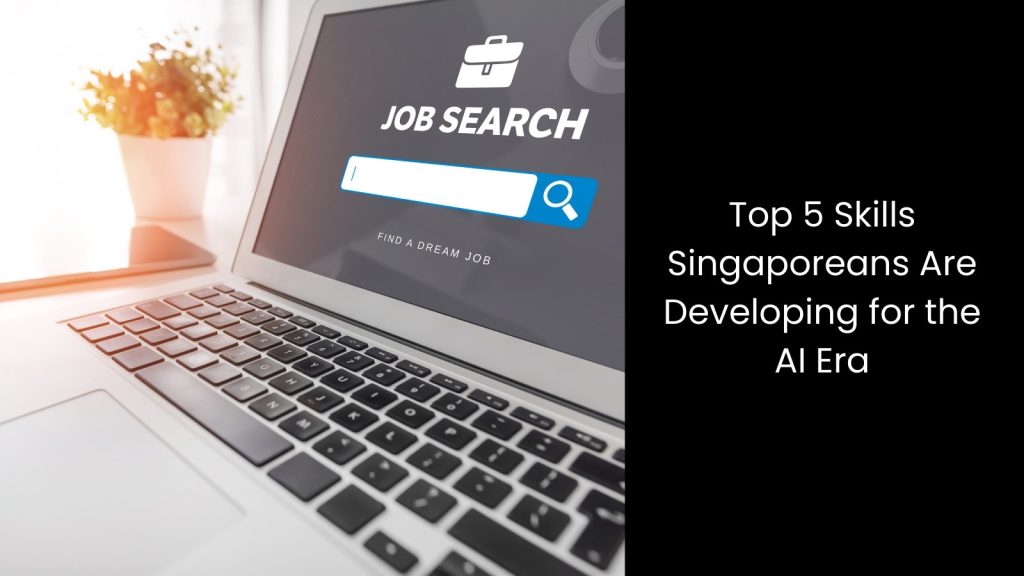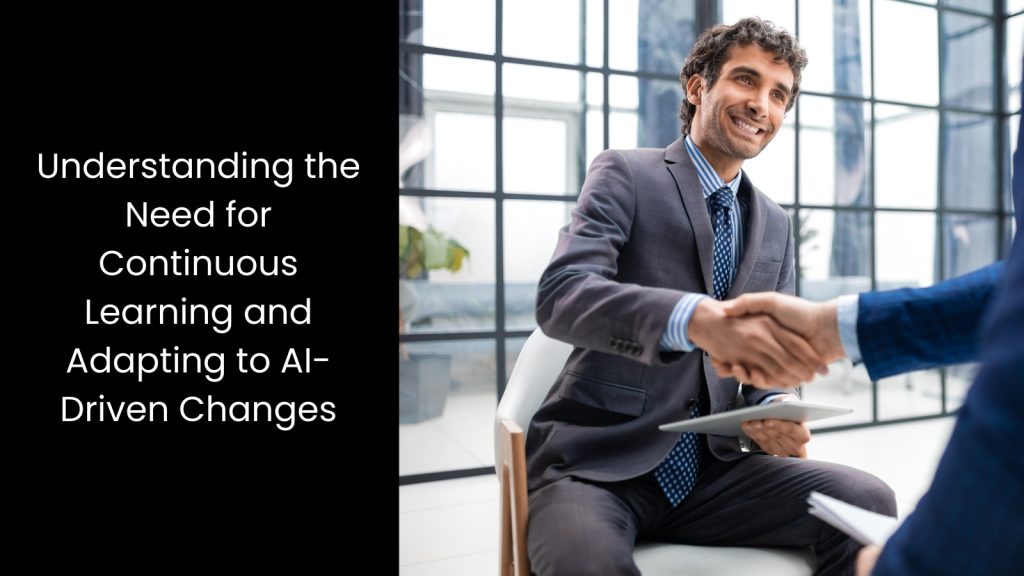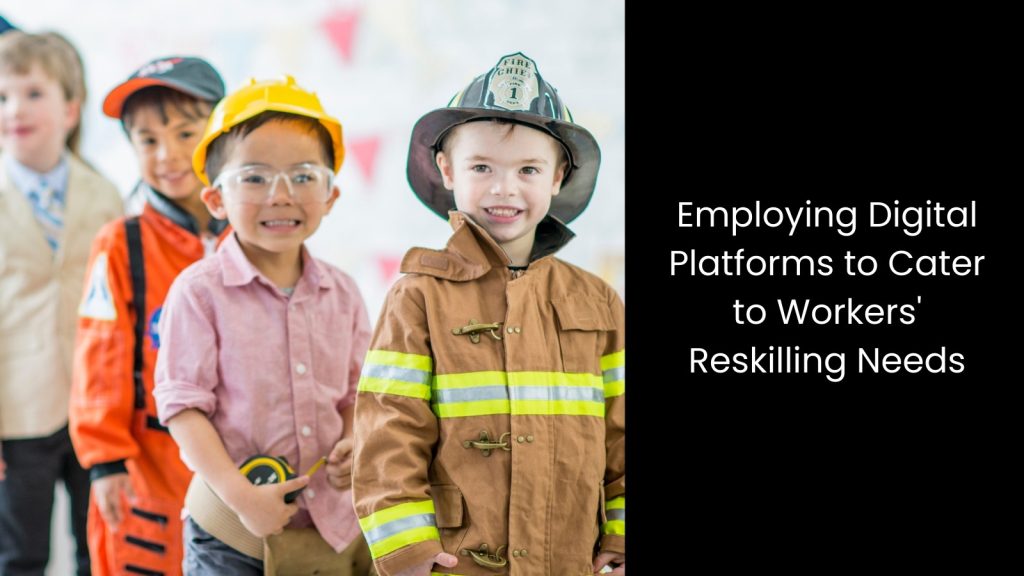The whole business world went upside down when British Telecom exclaimed that they were aiming to replace 10,000 staff with AI within 7 years. Do you remember? Singapore is not exceptional when it comes to AI adoption. As the AI era accelerates, the workforce in Singapore is undergoing a profound transformation. With automation and artificial intelligence reshaping industries, staying competitive means more than just keeping up with technological advances. It is about mastering the right skills. Singaporeans have to take this as a challenge and focus on key skills that will define the future of work in order to stay relevant to the AI revolution.
Let us explore the five most essential skills Singaporeans are developing to survive and thrive in this dynamic, technology-infused landscape.
We will discover
AI Revolution and Its Impact on the Job Market in Singapore

- According to recent reports, 50% of Singaporean workers are willing to reskill to remain relevant in the fast-evolving job market shaped by the AI revolution.
- Artificial intelligence continues to redefine industries by automating routine tasks, enabling advanced data analysis, and enhancing decision-making processes. In Singapore, this transformation drives demand for roles requiring technical expertise, creativity, and strategic thinking, while reducing the need for repetitive manual tasks.
- Companies across sectors, from finance to healthcare, increasingly adopt AI tools to boost efficiency, creating a shift in workforce requirements. Workers now have to prioritise acquiring analytical skills like critical thinking, problem-solving, and complex information analysis to complement AI systems.
- The AI revolution in Singapore demands continuous adaptation, pushing Singapore’s workforce to embrace a culture of lifelong learning. If they can reskill and upskill strategically, Singaporeans will be able to prepare to thrive in a landscape where AI augments human capabilities, opening new opportunities in emerging fields like AI ethics, cybersecurity, and data analysis.
- This transformation underscores the importance of blending human creativity with machine efficiency to effectively navigate the dynamic job market.
Top 5 Skills Singaporeans Are Developing for the AI Era

Analytical Skills
Analytical skills empower Singaporean workers to adapt effectively to the AI era by enabling them to interpret data, evaluate complex information, and make informed decisions. Let us understand what this indicates.
Defined as the ability to think critically, solve problems, and conduct thorough research, analytical skills have become a cornerstone in AI-driven workplaces. These skills hold immense importance because AI systems thrive on data, and workers must analyse and interpret this data to draw actionable insights.
As it seems, in Singapore, 40% of workers actively enhance their analytical skills to stay competitive in the evolving job market. While mastering critical thinking, they learn to identify patterns, assess risks, and develop strategies that align with business objectives.
In one way, complex information analysis helps them navigate vast amounts of data generated by AI systems, making it easier to detect anomalies, predict outcomes, and uncover opportunities. In another way, research is vital in staying updated on emerging AI trends and identifying ways to integrate them into workflows. These skills collectively enable Singaporeans to tackle AI-related challenges, such as optimising operations, mitigating risks, and improving overall efficiency.
Functional and Job-Specific Skills
These skills equip Singaporean workers to thrive in the AI era as they provide industry-focused expertise that complements advanced technologies.
Functional skills, tailored to specific roles and sectors, include critical abilities like accounting, sales, finance, and technical skills. These competencies remain essential as they enable workers to apply their expertise in ways that maximise the benefits of AI systems.
According to Singaporean reports, 35% of workers focus on honing these job-specific skills to remain competitive in the evolving job market. For example, accountants do not hesitate to employ AI tools to automate routine processes like bookkeeping and tax calculations while using their expertise to interpret financial reports and provide strategic insights. Likewise, sales professionals combine their understanding of customer behaviour with AI-powered analytics to identify leads, personalise offerings, and improve conversion rates.
Moreover, functional skills improve efficiency by seamlessly integrating AI into business operations, minimising errors, and maximising output. It is an essential factor to know that in an AI-driven workplace, these job-specific skills bridge the gap between machine capabilities and human judgement, fostering a synergy that drives innovation and success.
Project Management Skills
If they can incorporate PM skills, it would enable them to coordinate complex, AI-driven projects effectively. These skills encompass planning, organising, managing resources, and meeting deadlines, ensuring that AI technologies integrate seamlessly into business operations.
Strong planning abilities help project managers define clear goals, set realistic timelines, and allocate tasks efficiently. Plus, organisational skills ensure smooth workflows by aligning human expertise with AI capabilities. Project management skills also enhance collaboration between AI systems and human teams. For example, a project manager coordinating a marketing campaign might use AI to analyse customer data while guiding team members in creating personalised content.
This synergy ensures that both humans and machines contribute their strengths to achieve optimal results.
Creativity and Innovation Skills
Did you know that 24% of Singaporean workers focus on creativity and innovation skills to prepare for the AI era?
If you go deep, you may see that the creativity factor involves generating unique ideas and solutions, while innovation applies these ideas to solve real-world challenges. In AI-integrated environments, creativity becomes essential in brainstorming original concepts, using design thinking to develop user-centric solutions, and crafting strategies machines cannot replicate.
For instance, workers skilled in design thinking can identify customer pain points and create innovative products or services that AI tools refine and optimise. Brainstorming sessions benefit from human creativity by producing fresh perspectives that complement AI-driven data analysis.
Creativity and innovation drive advancements by encouraging out-of-the-box thinking, which is essential for overcoming challenges in dynamic, AI-powered workplaces. They also create resilience, allowing workers to pivot and thrive as technology evolves. If it is possible to prioritise creativity and innovation, Singaporean workers remain indispensable in an era where AI handles routine tasks but cannot replicate the human ability to ideate and inspire.
These skills not only future-proof careers but also contribute to Singapore’s reputation as a global innovation hub, positioning its workforce to lead in an AI-driven economy.
Advanced Digital Skills
In a digitalised era like this, one thing Singaporean workers cannot proceed without is advanced digital skills. What are the reasons for saying this? Let us justify.
These skills empower workers to navigate and thrive in an increasingly AI-driven job market. Coding enables workers to create, customise, and troubleshoot AI applications, ensuring seamless integration into various workflows. Handling AI models involves training, fine-tuning, and deploying algorithms to solve specific problems, such as predictive finance analytics or personalised e-commerce recommendations.
Further, data analysis skills allow workers to interpret large datasets, extract meaningful insights, and make data-driven decisions that enhance organisational efficiency and innovation. By mastering these capabilities, workers not only increase their value in the workforce but also prepare for future-proof roles in the AI ecosystem. For instance, a professional with advanced digital skills can oversee the implementation of AI-driven automation processes, ensuring optimal performance while reducing operational costs.
So, as it is visible, these skills also establish adaptability, allowing workers to keep pace with evolving technologies and remain relevant as industries undergo digital transformation. As AI continues to handle repetitive tasks, workers with advanced digital skills play a critical role in overseeing, optimising, and innovating within AI frameworks.
It has become a vital point to invest in these skills; Singaporean workers future-proof their careers, contribute to technological advancements, and help position Singapore as a global leader in the AI revolution.
Understanding the Need for Continuous Learning and Adapting to AI-Driven Changes

What we have highlighted in the above sections is that there is a rising need for continuous learning and adapting to AI-driven changes as it becomes a top necessity as the workforce evolves alongside technology.
It is indeed a promising fact that five in ten workers in Singapore show a willingness to reskill to remain competitive, reflecting a growing awareness of the necessity to adapt. However, many workers only pursue upskilling when they face significant challenges, highlighting the need for a proactive mindset.
As it seems, their most preferred learning methods range from online videos, tutorials, and workshops to mentoring, which offers flexible and accessible options for workers to build new competencies.
Despite these preferences, limited time remains a significant barrier to consistent learning. Compared to their Southeast Asian counterparts, a higher proportion of Singaporeans report dedicating no time to learning and development, which could hinder their ability to stay ahead in the rapidly changing AI-driven landscape. This is certainly a drawback for Singapore’s future.
This is why it must be a mechanism to proceed with continuous learning, as it equips workers with essential skills to navigate technological transformations, such as integrating AI tools, analysing data, and solving complex problems. When embracing flexible and time-efficient learning platforms, Singaporeans can address skill gaps while maintaining productivity. Prioritising lifelong learning not only ensures career resilience but also strengthens Singapore’s workforce to remain competitive in a global AI economy.
Employing Digital Platforms to Cater to Workers' Reskilling Needs

In today’s fast-moving world, reskilling is not something one should compromise on, but the challenge lies in finding time. If training centres in Singapore can employ robust digital platforms, with their powerful training management systems, it will offer Singaporean workers the flexibility to learn remotely or through apps, fitting seamlessly into their busy lives. However, when purchasing these platforms, it is important to align the training centre’s requirements with the tool’s features. A reliable software provider can remove all these worries from you beyond doubt.

